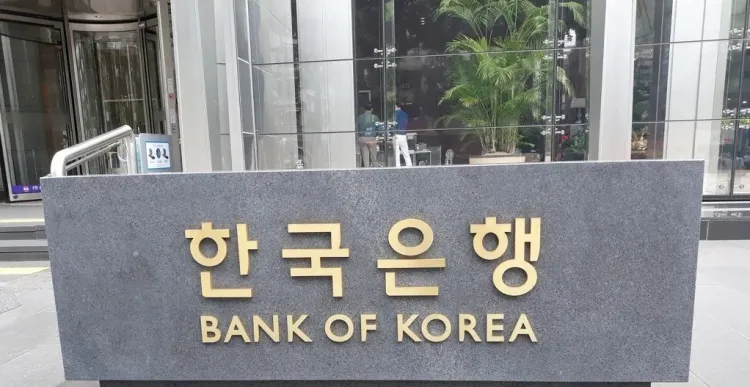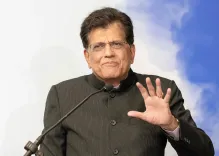Will the Supplementary Budget Really Affect Inflation?

Synopsis
Key Takeaways
- Supplementary budget aims for limited inflation impact.
- Targeted support favored over universal aid.
- Inflation projected to increase marginally.
- Government focuses on aiding low-income groups.
- High inflation uncertainties persist.
Seoul, June 18 (NationPress) The government's additional supplementary budget is anticipated to influence inflation minimally, with a preference for targeted support over universal assistance, as stated by the central bank's leader on Wednesday.
Bank of Korea (BOK) Governor Rhee Chang-yong expressed these views during a press briefing in Seoul, revisiting the inflation target for this year. The government plans to present a second supplementary budget of about 20 trillion won (approximately US$14.58 billion), following the 13.8 trillion-won package that the National Assembly approved in May.
“I have consistently maintained that a supplementary budget can significantly aid economic growth while exerting limited pressure on inflation,” Rhee remarked, according to Yonhap news agency.
BOK Deputy Governor Kim Woong informed the media that the proposed 20 trillion won budget could elevate next year’s consumer prices by around 0.1 percentage point, while its influence on this year's inflation would be negligible.
President Lee Jae Myung has been a proponent of an expansionary fiscal policy aimed at invigorating economic growth and enhancing public welfare, which have suffered due to weak domestic demand and stringent tariff measures implemented by the Trump administration.
Government and ruling Democratic Party officials indicated that the planned supplementary budget would feature universal cash payments for all citizens, alongside targeted assistance for low-income and vulnerable populations.
“From a fiscal effectiveness standpoint, targeted support is superior to universal aid in assisting those in need, including self-employed individuals and small business owners,” Rhee stated.
The potential ramifications of the extra budget on inflation and economic growth will be evaluated once the government discloses the detailed plan, with BOK expected to provide its formal analysis following the rate-setting meeting in July.
Addressing the overall inflation landscape, the governor noted that perceived inflation and living costs have remained high since the COVID-19 pandemic, despite stable prices in the first half of the year.
“Looking forward, uncertainties are heightened due to factors like consumer price inflation and soaring global oil prices driven by geopolitical tensions in the Middle East. Monitoring the interplay of various inflation drivers is crucial,” he added.
Consumer prices increased by 1.9 percent in May compared to a year earlier, marking the first instance in five months that inflation dipped below the 2 percent mark.
However, the rise in processed food prices remained steep, consistently hovering around 4 percent for the second month in a row. Additionally, dining-out costs surged by 3.2 percent year-on-year in May.
In light of the growing financial burdens on citizens, President Lee expressed concerns last week regarding recent price escalations in essential goods, such as instant noodles, and directed officials to formulate strategies to mitigate inflation.
The BOK anticipates consumer prices to rise by 1.9 percent this year and 1.8 percent in 2026.









